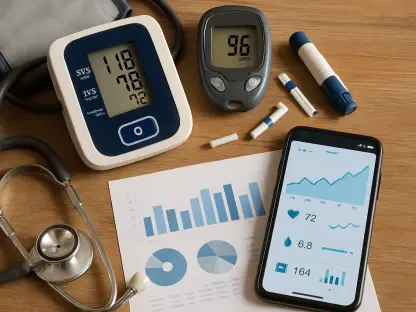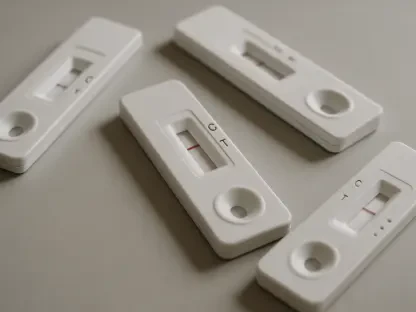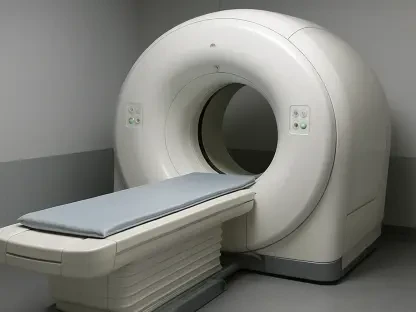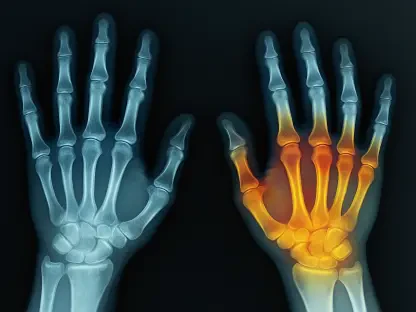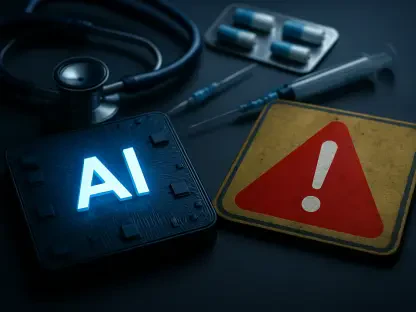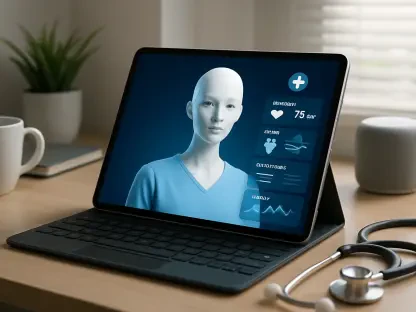Modern healthcare environments require nurses to be proficient in using electronic health records (EHRs), a skill increasingly vital for improving patient outcomes and streamlining care processes. Marquette University’s nursing curriculum, led by Dr. Sarah Calonder, has taken significant strides in addressing this need by integrating Epic Systems’ Lyceum learning platform. This move aims to bridge the gap between theoretical knowledge and practical application in EHR, ensuring nursing students are well-equipped to handle the complexities of contemporary healthcare systems. Dr. Calonder’s unique perspective, balancing roles as both an educator and a bedside nurse, has highlighted the critical importance of EHR proficiency and the gaps that currently exist within nursing education. Her efforts are steering the integration of EHR training into upper-level nursing courses, a change that promises to reshape the landscape of nursing education.
The Role of EHR in Nursing Education
In today’s healthcare settings, the ability to efficiently use EHR systems is indispensable. Nurses must not only understand how to input data but also how to interpret and utilize this information to make informed clinical decisions. Dr. Sarah Calonder’s research at Marquette University revealed that many nursing students struggled with effectively using EHRs due to their complexity, often missing critical patient information. This gap in education underscores the necessity of integrating practical EHR training into nursing curricula.
The collaboration between Marquette University and Epic Systems has made it possible to introduce EHR technology directly into the classroom. This integration allows students to gain hands-on experience, solidifying their learning objectives with practical application. The Lyceum platform offers an interactive environment where students can practice and enhance their EHR skills, moving beyond theoretical knowledge to develop proficiency in a real-world context. The program continually evolves based on feedback from both Marquette and other schools, ensuring it meets the educational needs of students and adapts to the dynamic nature of healthcare technology.
Challenges and Solutions in Implementing EHR Training
Despite the evident benefits, implementing EHR training in nursing education is not without challenges. One of the primary barriers is cost. EHR systems are expensive, and integrating them into academic programs requires significant financial investment. Dr. Calonder advocates for ongoing discussions between nursing schools and EHR vendors to make these technologies more accessible. Financial considerations must be balanced against the long-term advantages of producing graduates who are well-prepared for the demands of modern healthcare environments.
Epic Systems has been supportive in this endeavor, offering efficiency classes that help students understand and utilize Lyceum’s components effectively. These classes are designed to enhance students’ practical skills, enabling them to transition smoothly into clinical practice where EHR proficiency is paramount. Beyond cost, another challenge is standardizing EHR training to ensure all students receive consistent, comprehensive education. In clinical settings, variability in EHR systems can hinder learning, making it crucial for institutions to provide a uniform training experience within their programs.
In-house training sessions guarantee that every student, regardless of their clinical placement, receives the same level of EHR education. This approach not only enhances their ability to use these systems but also prepares them for diverse healthcare environments where efficient EHR use is critical. Standardization within the academic setting helps mitigate the inconsistencies found in clinical placements, ensuring that all nursing graduates are equally proficient in EHR utilization.
Future Directions for EHR Integration in Nursing
Looking ahead, Dr. Calonder envisions EHR training commencing from the very first nursing course. This progressive approach would build students’ knowledge and familiarity with the system over the years, culminating in senior students who are adept at navigating and utilizing EHRs. Early and consistent exposure to these systems would ingrain EHR proficiency as a core component of nursing education, contributing to safer and more efficient patient care.
Marquette University’s effort serves as a model for other institutions aiming to enhance their nursing programs through EHR integration. As more schools adopt similar strategies, the landscape of nursing education will evolve, producing graduates who are better prepared to meet the technological demands of modern healthcare. Continuous collaboration with EHR vendors and ongoing adaptation based on educational feedback are essential for refining these programs and ensuring they remain relevant in an ever-changing healthcare environment.
By embedding EHR training deeply within the curriculum, nursing schools can prepare future nurses to excel in their roles, ultimately leading to improved patient outcomes and greater efficiency in healthcare delivery. The initiative at Marquette University illustrates the potential for innovative technology to transform nursing education, equipping students with the skills needed for the future of healthcare. As this approach becomes more widespread, the impact on nursing education and patient care promises to be profound.
Conclusion
In today’s healthcare environment, the efficient use of Electronic Health Records (EHR) systems is critical. Nurses need to know how to input data accurately and interpret and use this information for informed clinical decisions. Dr. Sarah Calonder’s research at Marquette University highlighted that many nursing students struggle with using EHR systems due to their complexity, often missing crucial patient information. This educational gap emphasizes the need to integrate practical EHR training into nursing programs.
Marquette University’s collaboration with Epic Systems has enabled the introduction of EHR technology directly into the classroom. This partnership provides students with hands-on experience, enhancing their learning through practical application. The Lyceum platform offers an interactive setting where students can develop and refine their EHR skills, transitioning from theoretical knowledge to real-world proficiency. The program continually adapts based on feedback from Marquette and other institutions, ensuring it addresses the educational needs of students while keeping pace with the evolving nature of healthcare technology.




